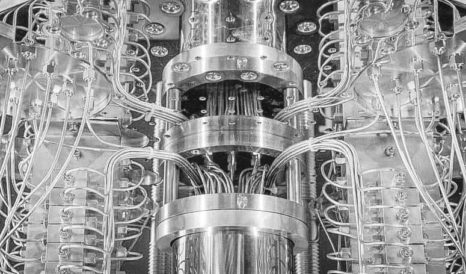Quantum Computer
Google’s new quantum computer blasts past supercomputers in processing speed
Google has developed a prototype computer that can perform a task in 200 seconds that would take the world’s fastest supercomputer 10,000 years to complete.

It’s all thanks to quantum technology – an area of theoretical physics that soars over the heads of most people.
In the simplest terms: in classical computers, information is held in units called ‘bits’. These bits can have a value of 1 or 0 – a binary system with the messages: yes or no. In a quantum system, a unit of information can be both 1 and 0; yes and no (a ‘qubit’). This surreal and complex mathematical phenomena has been part of a decade long drive to create a computer that makes use of these qubit’s to make multiple calculations at the same time therefore increasing its processing speed. It is effectively 2 to the power of 57 i.e. an extremely large number times faster therefore than a standard computer.
Google appears to have won the race with its Sycamore quantum processor. Tech rivals IBM were quick to challenge the claims of the prototype, however. Their researchers have claimed that supercomputers can perform the same tasks in 2.5 days, not 10,000 years, and that the results on the classical computer currently have ‘greater fidelity’.
UCL professor Jonathan Oppenheim had this to say about Google’s achievement: “It’s an impressive device and certainly an impressive milestone. We’re still decades away from an actual quantum computer that would be able to solve problems we’re interested in.”
Like all developments, it has to start somewhere, and Google has come up with the first functioning prototype that launches a whole new potential for technology – speeding up processes in every part of life, from diagnosing illnesses to financial strategies or from manufacturing to despatching emergency vehicles.
